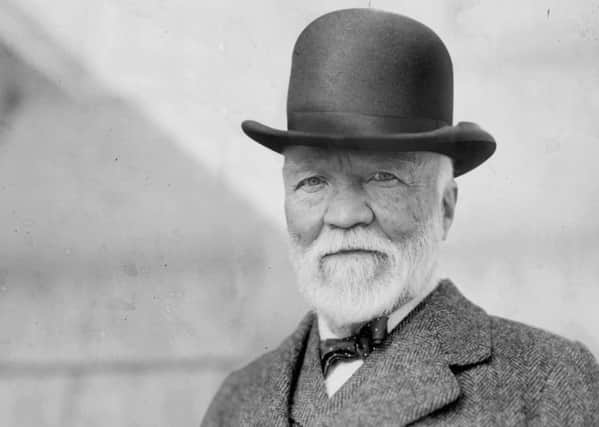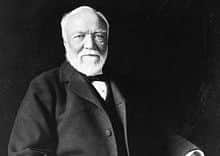What Andrew Carnegie gave the world
This article contains affiliate links. We may earn a small commission on items purchased through this article, but that does not affect our editorial judgement.


On November 25 1835, one of the most successful industrialists and philanthropists was born at 4 Moodie Street, Dunfermline.
The young Carnegie was indelibly shaped by the role his family played in Fife’s textile industry.
Advertisement
Hide AdAdvertisement
Hide AdHis name is now synonymous with big business and large-scale philanthropic endeavour.


But it was a true rags to ritches story, as Andrew Carnegie was the son of a poor weaver from Dunfermline who amassed the largest fortune ever seen before his death in 1919.
We take a look at five amazing riches Andrew Carnegie brought to the world.
Libraries
Carnegie, who emigrated to America, benefited from the ‘open door’ policy of local wealthy Pennsylvanian Colonel James Anderson’s library, borrowing books profusely in his hunger to better himself.


It is thought that Carnegie’s wonder at being given access to the library, at a time when immigrants and poor children were not widely accepted, was the catalyst for the “Carnegie libraries” that he would found later in life.
Towns across the UK, Ireland and America benefited from public libraries paid for by Carnegie and his charitable trusts.
Among the institutions founded in his name is New York’s famous Carnegie Hall, a venue considered to be among the most prestigious in the world.
Advertisement
Hide AdAdvertisement
Hide AdA more modest venue with the same name stands in his home town Dunfermline, allowing generations of less well-known performers and local school children to claim that they too have performed at Carnegie Hall.
Carnegie’s longest-lasting contributions to society were the libraries that he funded throughout Scotland, the United States, Canada and even as far afield as the Caribbean and Malaysia. To date, over 2,300 have been built worldwide during and after Carnegie’s lifetime, which immortalised the Scotsman’s gratitude for the rich man’s library he grew up in.
The Carnegie dictum
Carnegie famously wrote that “the man who dies rich dies disgraced”. He further elaborated his theory of philanthropy, known as the Carnegie dictum.
It called for individuals to spend the first third of one’s life getting all the education one can, to then spend the next third making all the money one can, and finally to spend the last third giving it all away for worthwhile causes.
King of steel
Carnegie was a ruthless and gifted businessman.
By 1899 his companies controlled 25 per of American steel production at a time when demand for the building material was growing at unprecedented rates.
The subsequent almagmalation in 1901 of the four big American steel companies made Carnegie the richest man in the world, and allowed him to give away more $350 million dollars - half a billion in today’s money - in his lifetime.
Restoration
By the time the Scots fortune was considerable, and as a member of the South Fork Fishing and Hunting Club, Carnegie had an extensive network of contacts and friends in business and politics.
Advertisement
Hide AdAdvertisement
Hide AdWhen the South Fork dam overflowed in 1899, Carnegie donated millions of dollars towards the aid effort for the Red Cross and the rebuilding of the Johnstown settlement.
Philanthropy
Even before his retirement in 1901, Carnegie devoted his money to the provision of educational and leisure services across the world. By the time of his death, nearly 90 per cent of the man’s fortune had been spoken for by charitable causes, musical organisations and grants across the world. One of his first actions was to build public baths back in Dunfermline in 1879, and he returned to Scotland with his mother and family in 1881 to tour the UK and lay the foundation stone of a “Carnegie library” in his home town.
Carnegie donated over a million dollars to the construction of the Peace Palace at The Hague, the home of the International Court of Justice, in the early 1900s, despite the onset of the First World War soon after. By the time of his death in 1919 of bronchial pneumonia, Carnegie had gifted or given away approximately £3.14bn of his fortune in today’s money.
DOWNLOAD THE SCOTSMAN APP ON ITUNES OR GOOGLE PLAY
